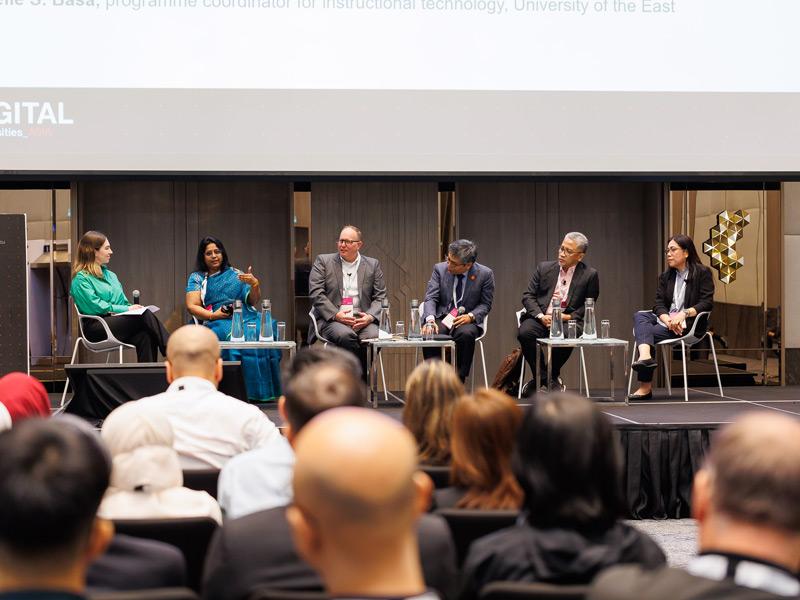How can we make cultural diversity issues relevant to all in this age of internationalisation? People who are white, cisgender male, heterosexual and with abled bodies are less likely to engage. This reluctance stems mostly from two reasons. Some people see cultural diversity issues as relevant only to marginalised groups. Others fear potential uncomfortable conversations and changes for which they are unprepared.
We at King’s College London have identified cultural competency as one of the two core values underpinning our internationalisation strategy, preparing students to thrive in a diverse and interconnected world.
- Seven exercises to incorporate into your gender studies classes
- Make EDI in higher education a reality by building it into your course design
- Equity, agency and transparency: making assessment work better for students and academics
Here, I’ll share some of the challenges and lessons we have learned while setting up the King’s Cultural Competency Unit (CCU), through the lens of five crucial questions.
‘What’s in it for me?’
To mitigate this challenge, we took these deliberate steps:
- Broadening the definition: We emphasised that cultural diversity encompasses all facets of human characteristics, making it relatable for everyone.
- Tackling contextual disadvantage: While we confront the systemic and structural roots of inequality, discrimination and marginalisation in cultural competency, we also view cultural competency as a practical approach to addressing contextual disadvantage that can affect people from all walks of life.
- Finding common ground: We believe that finding common ground will allow us to start building an inclusive environment that encourages constructive conversations and mutual understanding, which is more likely to result in wider systemic changes for an equitable world.
‘What is cultural competency after all?’
Cultural competency (CC) is defined collectively by students and staff as “the ability to view the world through the lens of other people – in all their diversity”. This includes people from different nations and regions, socio-economic backgrounds, races, genders, sexualities, ages, religions and abilities, to name but a few. We believe that developing cultural competency in students can boost their employability. Staff CC development can foster inclusive pedagogy and innovative research, promoting personal and professional growth and an equitable campus environment.
As with “culture”, a consensus has never been reached on the definition of “cultural competency” and the domains it encompasses. Alternative terms, such as cultural sensibility or cultural humility, have been suggested but, as discussed in our work, we advocate for retaining the term “competency” because of its focus on behavioural change and transformative outcomes. Unlike other terms that emphasise cognitive development, competency drives practical shifts.
Instead of adopting an existing definition, we carried out consultations with students and staff to come up with our own. This approach aligns with the evolving and context-bound nature of CC. However, the challenge of identifying the domains within cultural competency programmes still remained. To address this, we turned to one of our recent systematic review articles as a foundation. This article introduces the ACT Cultural Model, emphasising that CC educational programmes should address three essential domains:
- Activating consciousness
- Connecting critical relations
- Transforming practices and services.
In addition to education, we are also developing a research strategy to generate knowledge about how CC is defined and implemented in different academic and professional contexts.
‘Who owns cultural competency?’
The CCU has its home in the faculty of arts and humanities, strategically positioned to draw from the wisdom of relevant subjects. Nevertheless, it transcends departmental boundaries, serving as a cross-university hub for interdisciplinary education and research. To ensure the sustainability of this model, the CCU operates in conjunction with an advisory board and a CC Co-creation (4C) Group.
The advisory board is composed of senior leaders at the university level, to ensure that the CCU activities align with the university’s priorities and are supported by all faculties and directories. The 4C group serves as a platform for collaboration and knowledge exchange. It welcomes anyone – faculty, staff or students – interested in developing cultural competency projects.
The 4C group prevents cultural competency from being confined to a single department or a select few individuals. Instead, it fosters collective ownership and co-creation within the university community.
‘Who’s paying for it?’
Successful projects hinge on proper resources. Two full-time academics were directly appointed to the CCU. Funding was also allocated to fund five secondments from other faculties to drive our interdisciplinary approach.
Students are an intrinsic part of co-creating CC. We have hired student co-creators across all programmes. We recognised that extracurricular activities like this tend to favour more affluent students with fewer social responsibilities. To bridge the gap, we established a separate fund to compensate students for their time spent with us.
‘Are we truly diverse?’
Originating in North America, the concept of CC has deep roots in Western norms, values and assumptions. Our CC project at King’s presents a unique opportunity to transform its meaning, transcending its original context and incorporating perspectives that have long been under-represented. Here are some key steps we took:
- Avoided defining CC that favours a particular value system.
- Increased cultural representation among the team through direct appointment and secondment.
- Ensured the team has expertise on the global South.
- Established international collaboration in education and research with the global South.
So far, just under 5,000 students and staff have participated in at least one of the cultural competency programmes. The feedback has been very positive. Participants report an increased sense of belonging and feeling more empowered to work and study. There are also strong indications of changed perspectives and behaviours as a result of these programmes. The positive impact on the university's internationalisation agenda is evident. These programmes foster a more inclusive and globally aware campus community, enhancing the university’s appeal to culturally diverse students and staff, both nationally and internationally.
Shuangyu Li is a reader in clinical communication and cultural competency and director of King’s Cultural Competency Unit at King’s College London.
If you would like advice and insight from academics and university staff delivered direct to your inbox each week, sign up for the Campus newsletter.




comment